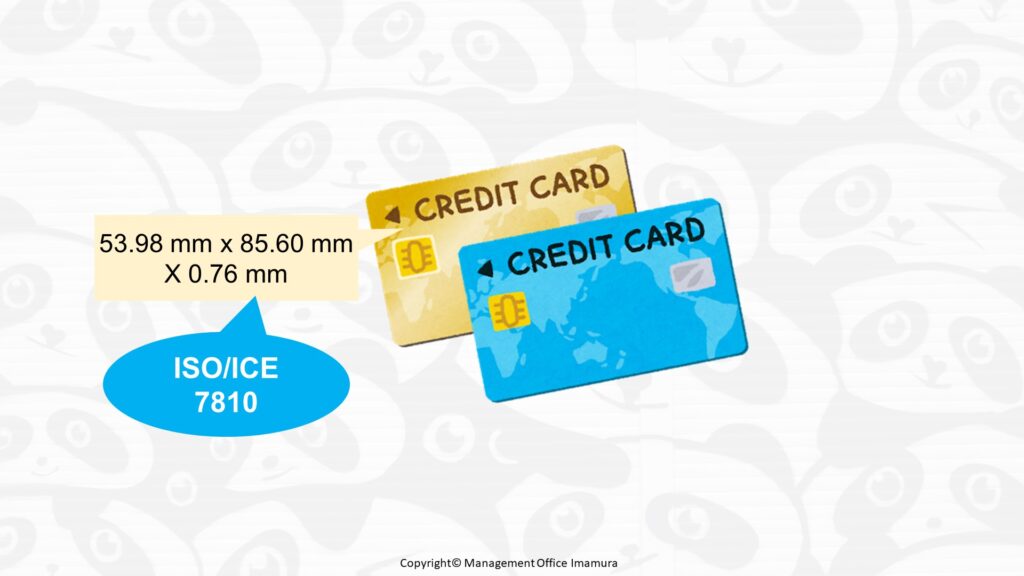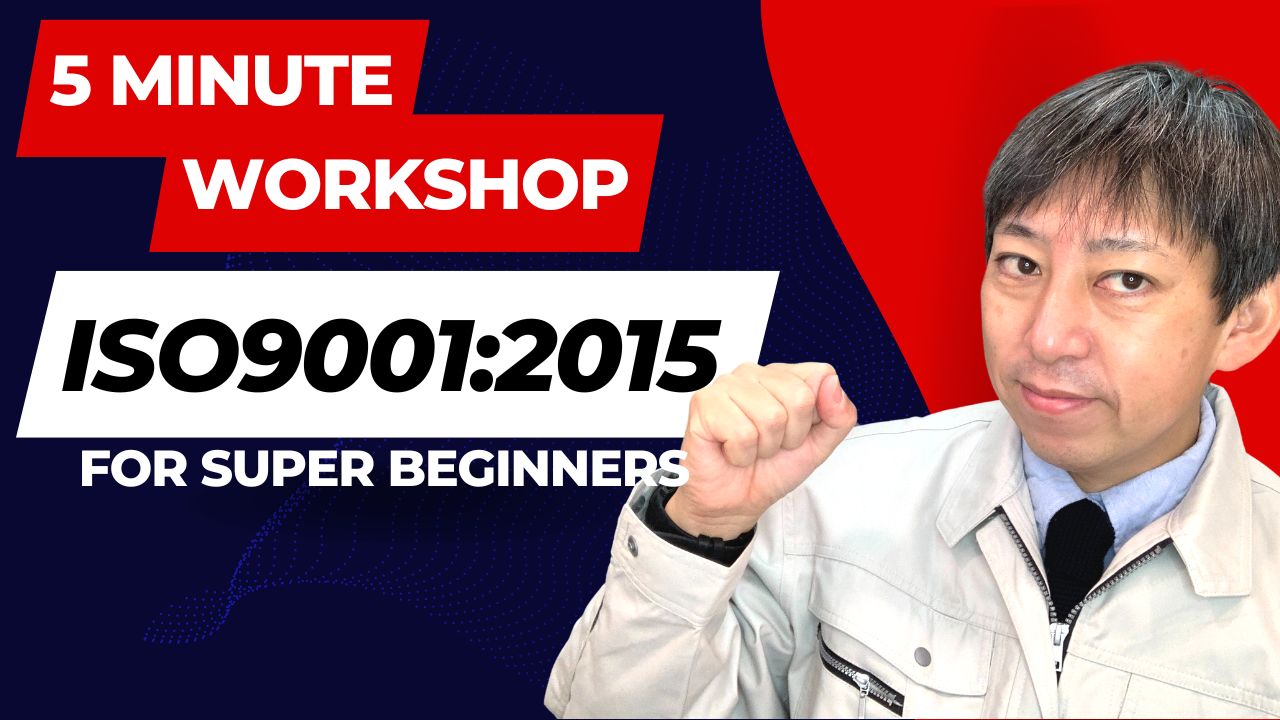A Japanese Management System Auditor is goint to simplify ISO9001 especially for beginners, just in 5 minutes!
Text follows the Movie
What is ISO?
Have you ever wondered why credit cards can be used globally? The reason for this is simple - credit card dimensions are standardized across all nations. Can you imagine what would happen if we had to carry different sized credit cards for each country we visit? To ensure seamless convenience, the credit card dimensions are standardized by international standards, also known as ISO.

Making things more convenient by having common rules for various jobs and transactions around the world is a key aim of the International Organization for Standardization (ISO). With over 20 thousands international standards, ISO establishes common guidelines across many different fields, including industrial products, technology, food safety, railroads, and medical equipment. One such standard, ISO 9001, focuses on management systems and defines the international rules for quality management.
What is the concept of ISO9001?
Let me simplify the concept of ISO9001 for you: it's a set of guidelines for a company or organization to follow to make sure that your products and services meet the expectations and needs of your customers. It's all about ensuring quality.
What is ISO9001 Management System?
I've used the word "System" repeatedly, but what exactly does it mean? The management “system” is like what is drawn in the chart.
Top management is the first key player and he or she takes the initiative to understand the organization's current situation and determine the policies the company should follow. Based on the policy established, plans are made. This involves identifying events that could cause quality problems, creating a plan to reduce these risks, and setting objectives to improve the number and severity of defects. To reach these objectives, a plan is put in place to specify who will do what, when, and how. The implementation phase involves executing the plans and ensuring that the necessary resources, including personnel and/or equipment, are in place.
After working on the plan and objectives, you review the results to assess your success and evaluate if the objectives were met. What didn’t go well needs to be reviewed, and the results reported to top management. Top management reviews these reports and makes any necessary actions to the management system. This creates a continual cycle of assessment and improvement, which is what defines a management system.
What's the benefit of being certified with ISO9001?
With ISO9001 certification, your company gains a number of benefits.
Firstly, it provides reassurance to your business partners that you are managing your operations in accordance with international standards. Being an internationally recognized standard, it is easily understood especially by your overseas customers.
Additionally, the standard helps proactively prevent major defects, streamlines the training process for new employees by providing standardized and documented work procedures, and minimizes the impact of problems on your company's reputation by having a systematic approach to identifying and addressing issues. The risk of defects recurring will be significantly reduced, thereby minimizing the damage to your company's reputation among customers.
Last but not least, it's important to keep in your mind that simply having a management system in place doesn't guarantee immediate improvement. It's crucial to continually assess and improve the system to ensure its effectiveness.

